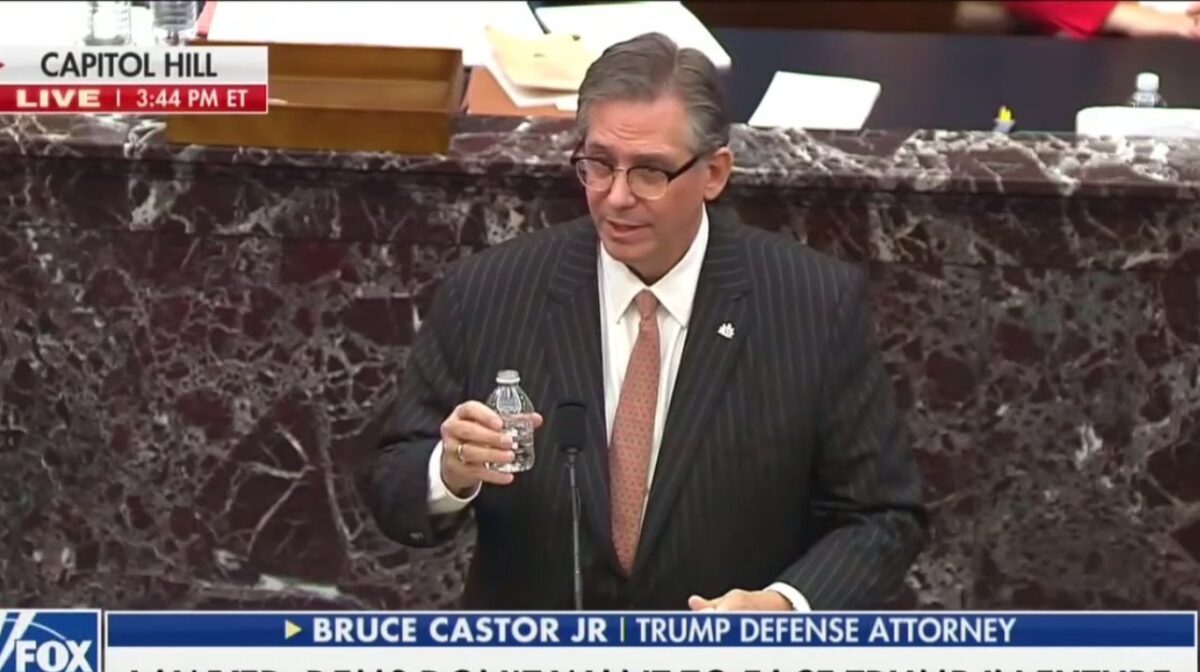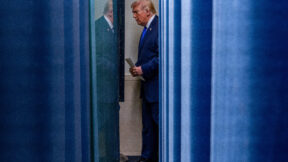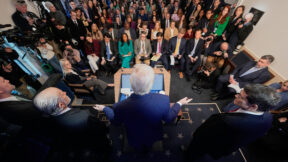What is The Connection Between Donald Trump’s Second Impeachment Lawyer and Bill Cosby’s Release From Prison?

Do you remember Bruce Castor? The lawyer who represented Donald Trump during his second impeachment trial, but was mocked even by the former president’s defenders for his bizarre opening statements?
If you’re drawing a blank, don’t worry, he’s about to be back in the news cycle in a big way. That’s because, in a certain sense, he’s part of the reason why Bill Cosby’s sexual assault convictions were tossed out, and now he has been released from prison.
In 2004, Castor was the district attorney of Montgomery County when Andrea Constand came forward to accuse Cosby of sexually assaulting her. As the Pennsylvania Supreme Court noted today in their announcement to vacate Cosby’s conviction, Castor determined at the time that there wasn’t enough evidence to charge Cosby under the statute of limitations, and he decided not to prosecute.
Castor then urged Cosby to testify in a civil case Constand filed against him next year, telling the disgraced comedian he wouldn’t criminally charge him on the basis of his testimony during that proceeding. Cosby went on to make a number of self-incriminating statements during the trial. A decade later, Castor’s successor, Kevin R. Steele, reneged on the deal by bringing criminal charges against Cosby that were based on his testimony.
Seeking “some measure of justice” for Constand, D.A. Castor decided that the Commonwealth would decline to prosecute Cosby for the incident involving Constand, thereby allowing Cosby to be forced to testify in a subsequent civil action, under penalty of perjury, without the benefit of his Fifth Amendment privilege against self-incrimination. Unable to invoke any right not to testify in the civil proceedings, Cosby relied upon the district attorney’s declination and proceeded to provide four sworn depositions. During those depositions, Cosby made several incriminating statements.
D.A. Castor’s successors did not feel bound by his decision, and decided to prosecute Cosby notwithstanding that prior undertaking. The fruits of Cosby’s reliance upon D.A. Castor’s decision Cosby’s sworn inculpatory testimony were then used by D.A. Castor’s successors against Cosby at Cosby’s criminal trial.
The state Supreme Court went on to determine that Cosby’s prosecution in 2015 was based on a fundamental unfairness and a violation of the due process rights he was entitled to from the Castor agreement. The ruling states that “Cosby relied to his detriment upon the district attorney’s decision not to prosecute him. The question then becomes whether that reliance was reasonable. Unreasonable reliance warrants no legal remedy.”
From pages 71 and 72 of the ruling:
In accordance with the advice his attorneys, Cosby relied upon D.A. Castor’s public announcement that he would not be prosecuted. His reliance was reasonable, and it resulted in the deprivation of a fundamental constitutional right when he was compelled to furnished self-incriminating testimony. Cosby reasonably relied upon the Commonwealth’s decision for approximately ten years. When he announced his declination decision on behalf of the Commonwealth, District Attorney Castor knew that Cosby would be forced to testify based upon the Commonwealth’s assurances. Knowing that he induced Cosby’s reliance, and that his decision not to prosecute was designed to do just that, D.A. Castor made no attempt in 2005 or in any of the ten years that followed to remedy any misperception or to stop Cosby from openly and detrimentally relying upon that decision. In light of these circumstances, the subsequent decision by successor D.A.s to prosecute Cosby violated Cosby’s due process rights. No other conclusion comports with the principles of due process and fundamental fairness to which all aspects of our criminal justice system must adhere.
New: The Mediaite One-Sheet "Newsletter of Newsletters"
Your daily summary and analysis of what the many, many media newsletters are saying and reporting. Subscribe now!






Comments
↓ Scroll down for comments ↓